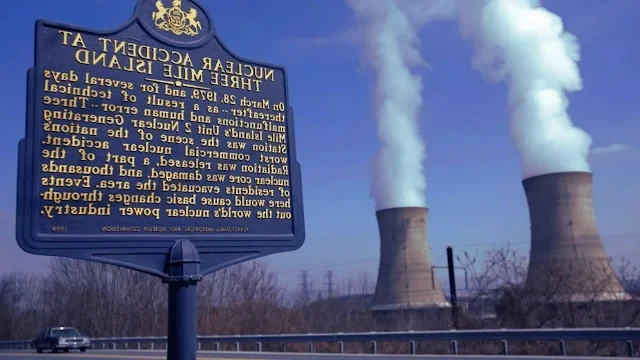In a surprising twist of history, the once-controversial Three Mile Island (TMI) nuclear plant in Pennsylvania is back in the news. Discussions around its potential reopening have sparked renewed debate about nuclear energy’s future in the U.S. This is more than just a local issue—it’s caught the attention of energy experts, environmentalists, and the public nationwide, trending on social media platforms like Google and Twitter. Let’s break down what’s happening and why people are so engaged.
A Quick Recap of TMI’s History
Three Mile Island is synonymous with one of the most infamous nuclear accidents in U.S. history. Back in 1979, a reactor at the plant suffered a partial meltdown, which led to widespread fear and uncertainty regarding nuclear power. Fortunately, the incident didn't result in any direct fatalities, but the psychological and regulatory aftermath shaped U.S. energy policy for decades. After nearly 45 years of cautious operation, the remaining reactor (Unit 1) was permanently shut down in 2019 due to economic reasons.
Fast forward to today, TMI is being considered for reopening.
The Push for Clean Energy and Economic Incentives
With climate change pressing nations to seek sustainable energy sources, nuclear power is making a slow but steady return to the spotlight. Constellation Energy, the current owner of TMI, is in talks with Pennsylvania state officials about restarting the facility. The driving factors include the push for clean, carbon-free energy and economic benefits for the region.
Nuclear power advocates argue that reopening TMI could significantly contribute to the state’s energy grid, providing a reliable, carbon-free energy source that complements renewables like wind and solar. Moreover, reopening could generate jobs, especially in the local Middletown community, where TMI is located.
But here’s the catch: restarting a dormant nuclear plant is no small feat. It would be the first of its kind in U.S. history, and the hurdles are steep.
The Challenges Ahead
Despite the potential benefits, the idea of restarting Three Mile Island faces stiff opposition. Critics point out that it’s not just a matter of flipping a switch. Nuclear experts like Eric Epstein, who leads a watchdog group called TMI Alert, have voiced concerns over a lack of proper waste storage, fuel, and water supplies at the plant. As Epstein puts it, there’s a lot of "dirty laundry" to clean up before moving forward with such a massive project.
Additionally, safety remains a top priority. The U.S. Nuclear Regulatory Commission (NRC) would need to conduct an exhaustive review before any operations could restart. The plant's components, many of which have been inactive since 2019, would need significant upgrades to meet modern safety standards. Any restart also requires addressing public concerns, particularly in a region where memories of the 1979 incident still linger.
Public Sentiment: Divided Yet Hopeful?
Public reactions are divided. Some residents, particularly those who lived through the 1979 meltdown, remain strongly opposed to any revival of the plant. They cite concerns about potential health risks and environmental damage.
However, others in the area see potential in bringing TMI back online. With global energy costs fluctuating and the demand for clean energy growing, nuclear power could offer a stable and carbon-neutral solution. As one local, Andrea Hoover, put it, "I think it would be good for the economy, job-wise, and also for cleaner energy too."
ries are scrambling for alternative energy sources. The question many are asking now is: Can nuclear power, and specifically, dormant plants like TMI, provide a long-term solution to energy security?
As of now, Constellation Energy has not made a formal decision about restarting the plant. Talks with the state government are still in the early stages, and any movement forward will involve extensive regulatory reviews and public consultations.
Whatever the outcome, one thing is clear: Three Mile Island remains a potent symbol of the challenges and opportunities of nuclear power in the modern era. Whether it becomes part of the solution to climate change or remains a relic of the past will depend on the ongoing balance between safety, economics, and the urgent need for clean energy.
Hashtags
As this story unfolds, social media is buzzing with conversation around TMI’s potential comeback. If you want to follow along or join the discussion, here are some hashtags to keep on your radar:
- #ThreeMileIsland
- #NuclearEnergy
- #CleanEnergy
- #TMIReopening
- #ClimateChange
- #EnergyDebate
By blending a complex past with the urgent demands of the present, Three Mile Island's potential reopening forces us to rethink our energy future. Whether you’re pro-nuclear or cautious about its risks, the conversation around TMI is one we can’t afford to ignore.
By covering the potential reopening of Three Mile Island, you not only tap into trending energy discussions but also engage with broader debates about our future energy choices. With climate change and energy independence at the forefront of global concerns, the future of this once-controversial plant is poised to make waves in more ways than one.





.jpg)




0 Comments